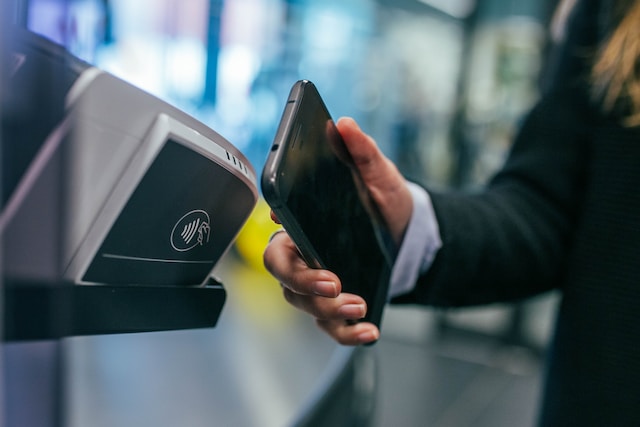E-commerce is one of the most rapidly evolving industries, radically changing the way businesses operate and consumers purchase goods and services. At the heart of this transformation lies fintech, a powerful catalyst driving innovation and growth across the digital marketplace.
But what is the exact impact of fintech on e-commerce? How is this cutting-edge technology, including Metaverse marketing, benefiting the online shopping experience?
Examples Of Fintech Driving Innovation
To help you understand the relevance of fintech, including its integration with Metaverse marketing, in e-commerce, we’ve put together a list of key ways this technology is fueling progress in the digital marketplace. Read on to discover the most important ways fintech is influencing e-commerce today!
Streamlining Payment Processes
Imagine you fire up your brand friendly 360 e-commerce monitoring software only to discover that your competitors are slowly but surely eating into your market share. What do you do? If you’re like most e-commerce businesses, you’ll start looking for ways to make the buying process more convenient. And one of the key ways to achieve that is by leveraging fintech to streamline payment processing.
Traditional payment methods often involve multiple steps, which can be time-consuming and frustrating for customers. On the other hand, fintech solutions, such as digital wallets and mobile payments, have made it possible for businesses to offer seamless and user-friendly checkout experiences.
Using Payment Gateways
By integrating various payment gateways, e-commerce platforms can now cater to a wider range of customer preferences and allow for instant transactions. These payment gateways increase customer satisfaction, leading to higher conversion rates and overall sales growth.
To illustrate the point, let’s take a look at Amazon. The e-commerce giant has made a killing by offering customers multiple payment options, including credit and debit cards, digital wallets, and even Amazon Pay. Multiple payment options have allowed them to cater to the needs of a diverse customer base and stay ahead of the competition.
Enhancing Cybersecurity Measures
The rapid expansion of e-commerce has made it a prime target for cybercriminals. Fintech companies are developing advanced cybersecurity measures to counteract this threat and to help protect businesses and consumers from fraud and data breaches.
These include state-of-the-art encryption technologies, secure authentication systems, and real-time monitoring of transactions to detect suspicious activities. By continuously improving security protocols, fintech is helping build trust in online shopping and ensuring that e-commerce platforms remain safe environments for conducting business.
Facilitating Cross-Border Transactions
With globalization making the world more interconnected than ever before, cross-border transactions are becoming increasingly important for e-commerce businesses looking to tap into international markets. Fintech is crucial in enabling these transactions by offering innovative solutions that overcome barriers like currency conversions, language differences, and complex regulations.
By providing multi-currency support, real-time exchange rate updates, and localized payment options, fintech enables businesses to expand their reach and attract customers from all corners of the globe.
Personalizing Customer Experiences
Fintech is also transforming the way e-commerce businesses interact with their customers by providing personalized shopping experiences. Through the use of artificial intelligence (AI) and machine learning algorithms, fintech tools can analyze customer data to generate tailored product recommendations based on individual preferences and shopping behaviors.
This level of personalization helps businesses increase customer engagement, loyalty, and, ultimately, sales. By delivering highly relevant content and offers, fintech is enabling e-commerce platforms to stand out in an increasingly competitive market.
Enabling Alternative Financing Options
Fintech has revolutionized the financing landscape by providing alternative funding options for consumers and businesses. For example, buy now, pay later (BNPL) services have become increasingly popular among online shoppers, allowing them to defer payments or split their purchases into smaller installments.
Additionally, fintech solutions like crowdfunding and peer-to-peer lending platforms have enabled e-commerce businesses to secure funding without relying on traditional banks and financial institutions. These alternative financing options empower entrepreneurs and small business owners to bring their ideas to life and drive innovation in e-commerce.
Empowering E-commerce Platforms with Data Analytics
Data analytics plays a pivotal role in the success of e-commerce businesses, enabling them to make informed decisions based on real-time insights. Fintech companies are developing advanced data analytics tools that help e-commerce platforms track customer behavior, monitor inventory levels, and optimize pricing strategies.
By leveraging these insights, businesses can make data-driven decisions that improve their overall performance and enhance customer satisfaction. The integration of data analytics into e-commerce platforms will continue to be a key driver of growth and innovation in the industry.
Fintech Of The Future
As the e-commerce landscape continues to evolve at a breakneck pace, fintech stands as a driving force behind the industry’s progress. By streamlining payment processes, enhancing cybersecurity, facilitating cross-border transactions, personalizing customer experiences, enabling alternative financing options, and empowering businesses with data analytics, fintech is revolutionizing the way we buy and sell goods online.
Of course, this is merely the beginning – with new technology advancements and innovations emerging, the symbiotic relationship between fintech and e-commerce will only strengthen. So keep an eye on this dynamic duo as they continue to shape the future of online shopping!
